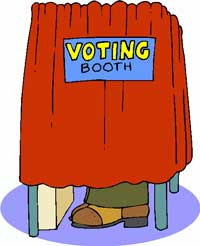
NYEmploymentLaw
New York, NY
Male, 34
I am a labor and employment attorney for a large New York law firm that represents employers in various areas of litigation, including discrimination and wage and hour claims. I also advise/counsel clients on a multitude of labor and employment matters as they arise, conduct internal investigations, harassment and other training, and help ensure that employers are up-to-date and in compliance with federal, state and local law. Nothing below should be construed as legal advice.
Not necessarily. In New York, if there is a written policy that clearly states that you will not be paid for unused vacation days upon the end of your employment, you are not entitled to such vacation pay. (This answer assumes that you are an at will employee. If you are unionized, your collective bargaining agreement may say otherwise.) Remember that as an at will employee, your employer can change its policies at any time, with or without notice. Therefore, even if your personnel handbook said that you would be paid for unused vacation upon termination of your employment when you were hired, the policy can change at any time, and you are bound by the new policy.
If you feel comfortable telling your boss that he or she is making you uncomfortable you may do so. However, often, employees are not comfortable doing so or speaking to the boss does not resolve the problem. For this reason, most companies have policies and procedures for reporting such incidents. You will typically bring your complaint or grievance to someone more senior that your supervisor or to HR personnel who should promptly investigate the matter. You can not be fired for making a good faith complaint against your employer if he or she has done something that you believe was harassing, discriminatory or if you blow the whistle on a perceived illegal activity.
Under the Family Medical Leave Act, employers with 50 or more employees within a certain geographic region must provide employees with up to twelve weeks of unpaid leave for the birth of a child and rearing the child in the first months after birth. In order to qualify, an employee must have worked with her employer for 12 months and worked 1,250 hours (minimum).
There is no clear threshold as to what constitutes sexual harassment. What constitutes sexual harassment is often not obvious or clear-cut, especially "hostile work environment" sexual harassment. Quid Pro Quo (tit for tat) harassment is easier to determine. It involves situations such as, "If you do not give in to my sexual demands, I will demote you," or "If you give in to my sexual demands, you will get a good evaluation." It conditions a concrete employment benefit or avoidance of an employment detriment on sexual favors. Less obvious and more common in the workplace is what I referred to as "hostile work environment" sexual harassment. Often, it is unintentional and therefore, it is very difficult to measure. It involves verbal, physical or visual conduct that is of a sexual nature, it is unwelcome and "severe or pervasive" enough to create a hostile or abusive workplace or alter one's work conditions (making it so unpleasant/unbearable to come to work or be effective in the workplace). Intent does not matter, and you may be found to have created such a hostile environment, even if a third party overhears conversations (e.g., between you and another co-worker who is a friend). As to the question at hand, if you ask a co-worker on a date on a single occasion in a friendly manner, it is not likely to be harassment. However, if you repeatedly ask, that may qualify as harassment, causing the employee to feel extremely uncomfortable. And, in the context of a supervisor-subordinate relationship, asking someone you supervise out could be seen as a form of the Quid Pro Quo harassment discussed above (beyond the fact that it is probably prohibited in your workplace).
Election Inspector
 Do most poll staffers agree that the ballots are REALLY confusing?
Do most poll staffers agree that the ballots are REALLY confusing?
EMT
 Does your crew ever fake an emergency to slice through traffic?
Does your crew ever fake an emergency to slice through traffic?
Certified Nurse Aide
 Is it uncomfortable having to help the elderly go to the bathroom and how did you get used to it?
Is it uncomfortable having to help the elderly go to the bathroom and how did you get used to it?
Hooters claims that hiring only female waitresses is what is called a "bona fide occupational qualification," or a "BFOQ." The company would argue that being female is an essential part of the job because its business is based on the idea that people go to Hooters to see attractive women. However, one should note that there have been numerous lawsuits about this, and some settlements. It is not altogether clear whether a court will uphold this allowance in the future should a court issue an opinion. For example, there is currently a lawsuit pending regarding weight requirements among Hooters waitresses.
Employees are classified as either "exempt" or "non-exempt." What this means in basic terms is that certain workers, usually hourly-paid workers are generally entitled to overtime pay (they are called non-exempt) because they are not executives, professionals or administrators. Typically, salaried workers fall into one of the above three categories and are paid a set salary, requiring them to work as many hours as necessary to complete their work. Non-exempt employees are paid one-and-one-half their hourly rate of pay for hours worked above 40 in a seven-day workweek.
From an employer's perspective, an employment "at will" standard is generally superior to alternatives (e.g., unions) because employees can be fired from their jobs with or without cause, or for any reason or no reason at all. From the perspective of the employee, employment "at will" is not likely to be perceived as ideal because of the lack of job safety involved. A union, for example, makes it much more difficult for an employer to terminate an employee.
-OR-
 Login with Facebook
Login with Facebook (max 20 characters - letters, numbers, and underscores only. Note that your username is private, and you have the option to choose an alias when asking questions or hosting a Q&A.)
(A valid e-mail address is required. Your e-mail will not be shared with anyone.)
(min 5 characters)
By checking this box, you acknowledge that you have read and agree to Jobstr.com’s Terms and Privacy Policy.
-OR-
 Register with Facebook
Register with Facebook(Don't worry: you'll be able to choose an alias when asking questions or hosting a Q&A.)